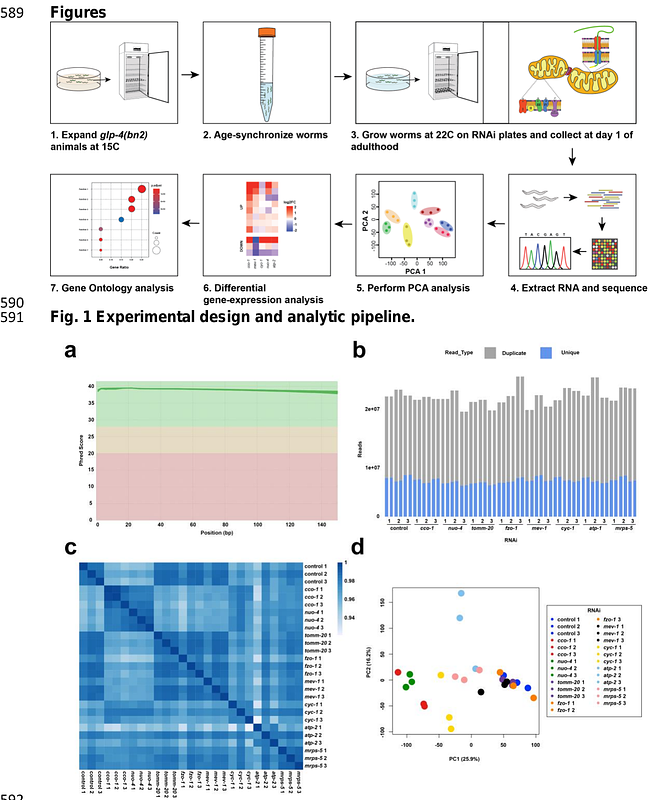Transcriptomic analysis of mitohormesis associated with lifespan extension in Caenorhabditis elegans

Transcriptomic analysis of mitohormesis associated with lifespan extension in Caenorhabditis elegans
Kim, J.; Garcia, G.; Dutta, N.; Higuchi-Sanabria, R.
AbstractNon-lethal exposure to mitochondrial stress has been shown to have beneficial effects due to activation of signalling pathways, including the mitochondrial unfolded protein response (UPRmt). Activation of UPRmt restores function of the mitochondria and improves general health and longevity in multiple model systems, termed mitohormesis. In C. elegans, mitohormesis can be accomplished by electron transport chain inhibition, decline in mitochondrial translation, decreased mitochondrial import, and numerous other methods that activate UPRmt. However, not all methods that activate UPRmt can promote longevity. These and other studies have started to question whether UPRMT is directly correlated with longevity. Here, we attempt to address this controversy by unravelling the complex molecular regulation of longevity of the nematode under different mitochondrial stressors that induce UPRmt by performing RNA-sequencing to profile transcriptome changes. Using this comprehensive and unbiased approach, we aim to determine whether specific transcriptomic changes can reveal a correlation between UPRmt and longevity. Altogether this study will provide mechanistic insights on mitohormesis and how it correlates with lifespan of C. elegans.